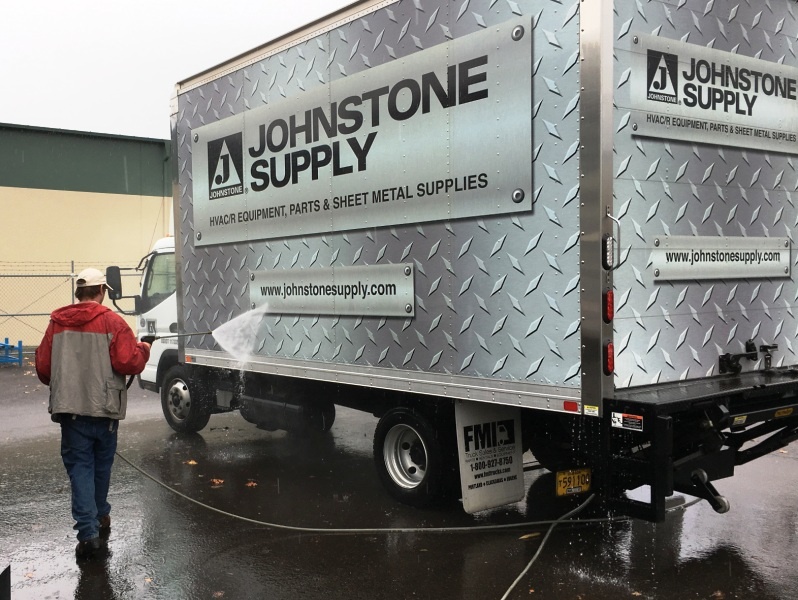Today’s professional drivers and their dispatchers know that truck and driver inspections are just a fact of life. As more vehicles crowd the highway system, accidents and incidents become commonplace and trucks are bound to be involved. The federal and state governments have targeted, perhaps unfairly, the commercial carriers for safety and mechanical deficiencies as a way of curbing the nation’s truck involved traffic fatalities.
All commercial trucks are required to get a regular safety and mechanical inspection. This is usually done by a qualified mechanic following an ever expanding list of items. However, a recent inspection will not deter a DOT inspector from checking out a suspicious looking vehicle. This is where a good vehicle washing program can help. Regular pressure washing will not just keep the vehicle looking good, but will expose potential DOT violations and minimize those pesky and expensive DOT fines.
Most of the country will experience some kind of winter and road salt is the enemy of a truck. Highly corrosive, these materials attack metal and really mess with the electrical systems and lighting. When left unattended, major damage from life shortening corrosion will send up the red flag to any inspector.
OK, so you are pulled in for an inspection and the officer pulls out the creeper. Under he (forgive me) or she slides, gets out the flashlight and goes searching for a little more cash for the state. They will look at the brakes, cross members, fuel tanks and lines, suspension, wheels and rims, fifth wheel connections and lighting among a long list of other stuff. And they will pick and prod. A clean vehicle, washed not just on the visible outside, but the frames, axles and engine will present the picture of a well cared for piece of equipment and project a professional and cooperative image.
Regular power washing by a well trained professional can and will help avoid the inspection in the first place. Given the choice of checking out a like new vehicle, clean and well maintained or something that saw its last wash job sometime around the Carter inauguration, most inspectors will dig in to “Old Blue” and they should. A dirty, greasy, rusty truck will likely have many a violation and should possibly be taken off the road.
So think of it as if you were taking a nice family trip to Disney World, filled up little Johnny with a couple of juice boxes and suddenly natures calls. The next closest exit is just ahead and down the ramp you go. I know you will stop at the clean looking gas station just a little farther up the road than the one on the corner that with a couple old cars out back, a crack in the window and some tires leaning up against the half opened garage door. My point is, why ask for trouble when a safer choice is obvious.

Recent Comments